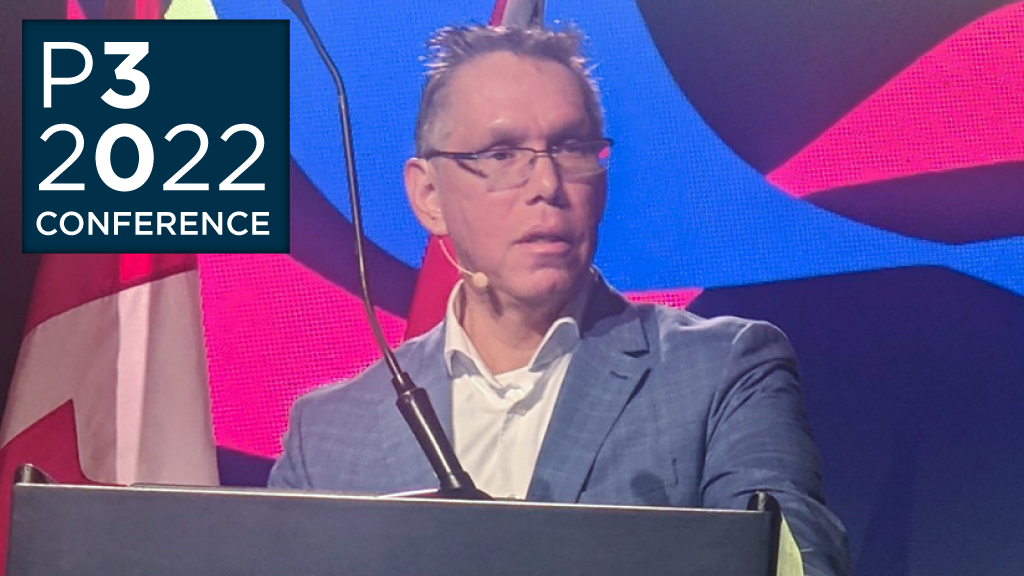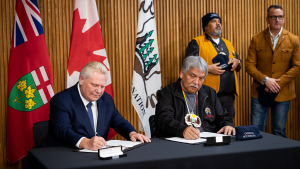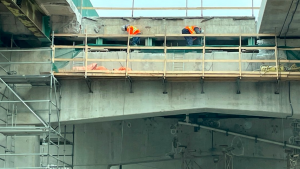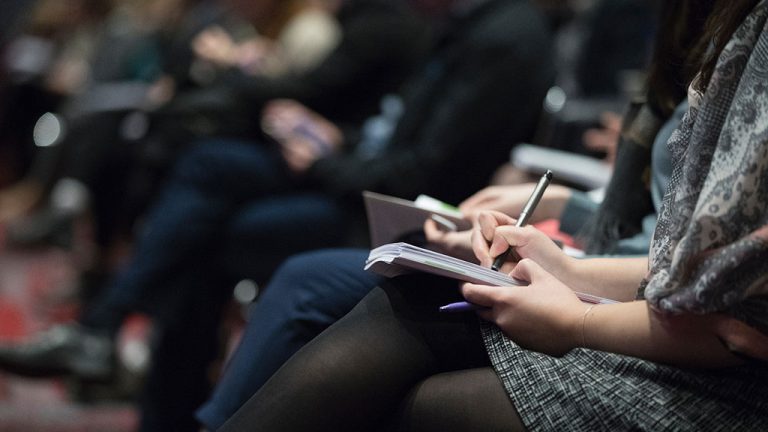It’s hard to think about the future when you’re trying to deal with immediate needs, said Michael Fox, president of Indigenous and Community Engagement (ICE), during his keynote address at the P3 conference Nov. 22.
“The main point here is that you can’t have prosperity without public infrastructure,” said Fox during the Canadian Council for Public-Private Partnerships conference in Toronto. “Infrastructure really is the backbone of our economy. National goals actually depend on it whether its clean energy critical minerals or public transit.”
For Indigenous communities, this includes accessible, affordable housing, clean water, adequate schools and basic health care.
“Basic needs need to be met before one can think about the future,” said Fox. “If you’re in pain you can’t think about the future. It’s like a kid who scrapes his knee. They are in the moment… There is no difference with communities that are in crisis that are in state of emergencies.”
That’s the problem when thinking about long-term strategic planning for Indigenous communities, he said.
“You’re not doing economic thinking, you’re not doing economic planning because it’s so future oriented,” said Fox. “Like education, there’s no immediate benefits. It takes time, effort to move on economic initiatives, so you have to deal with the social as you deal with the economic.”
Fox has been in the space for over 25 years and has seen the evolution of equity participation in Canada.
He spoke specifically about the elements that enabled the Indigenous communities to get involved in hydro projects in Ontario, including the Green Energy Act and the Ontario Power Authority planning. There was also study money provided.
The Ministry of Natural Resources also included Aboriginal participation as one of the criteria when evaluating companies for projects.
“People that just came in with light agreements with communities got lower scores than those that came in that said we’re going to offer you equity,” Fox said. “You saw equity deals happening in the hydro sector 18 to 20 years ago, earlier than that, that allowed the renewable energy equity participation for Indigenous nations in Ontario.”
Overall, he said the progress over the last 25 years has been “remarkable.”
Today he project manages environmental impact assessments on behalf of Indigenous communities.
“I didn’t see that 25 years ago. We were asked to participate in environmental assessments,” said Fox. “The Ring of Fire communities tried to deal with the companies at the time 15 years ago and they decided over the time…we want to be proponents. These same two communities protested the Ring of Fire over 12 years ago. If you think about that journey from protest to becoming a proponent over that 12- to 15-year journey, that’s remarkable.
“They’re more about self-determination, their right to determine their own development path,” Fox said. “They are exercising their autonomy, its Indigenous agency. They’re going to exercise their agency. They’re not going to be victims of development. They’re going to become agents
of development. That’s what’s happening today. They understand that so they’re kind of reimaging their lives, reimagining their lands, reimagining their livelihoods.”
It’s important Indigenous principles are integrated in projects and that they are designed based on Indigenous knowledge from members of communities.
“Projects come in and proponents ask me ‘can you give us your Indigenous knowledge so we can tweak our project design,’” he explained. “They can actually create a project design on their Indigenous knowledge which is the best way.”
You can’t have first-world government with a third-world economy, he added.
“They need major infrastructure to feed the world of critical minerals, to move to a greener economy, to realize economic reconciliation,” said Fox. “They (Indigenous people) know the history. That progress has been uneven, development has been one sided and the benefits have been unbalanced.”
The Indigenous ecosystem is changing in Canada.
“It’s no longer one of total forced dependency or economic exclusion,” Fox stated. “We’re now seeing Indigenous environmental assessments, Indigenous-led projects, Indigenous-led economies.”
He asked those in attendance to think of it as a change management economic planning exercise.
“It’s almost equal to, in my opinion, the advent of the Internet,” he said. “To undo the last 150-plus years of economic exclusion…That’s when I get excited, when I see it all across the country and that’s what I see, a time in the not too distant future where I’m not talking about inter-generational wounds, I’m talking about inter-generational wealth and that’s the journey we’re on today.”
Follow the author on Twitter .











Recent Comments
comments for this post are closed